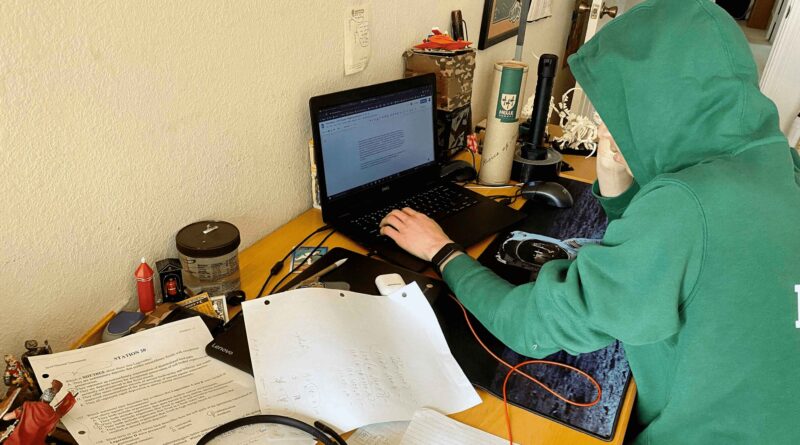Mental Health during COVID-19
When CVHS shifted to distance learning back in March due to COVID-19, most thought that things would return to normal a few weeks later. Fast forward six months to today: students and teachers find themselves in a new school year but still in online learning. With this new learning system being new to everyone, the pandemic still going on, and the continuation of social distancing, some students find themselves with more stress and anxiety than they had before.
Anxiety is a feeling tied to our reaction to a situation we think of as stressful, such as taking a test, or dangerous. Fear is the emotional response to real or perceived imminent threat, whereas anxiety is anticipation of future threat. When we are afraid, our body changes to cope. Hormones are released to help us stay safe by running away or fighting (the fight or flight response you may have heard about), explains CVHS psychologist Steve Grue.
Many students find themselves worried about a variety of things, outside of the regular stresses of classes and college applications. Some are worried about the pandemic and its spread, or about elderly family members who are more susceptible to the virus. For others, it can be very difficult for some to be separated from their friends for such a long period of time as humans are very social creatures.
“To some extent, all of us are living with a level of fear, a heightened state of arousal about getting COVID, losing a job and home, going hungry, etc. This fear and anxiety can become overwhelming,” said Grue.
Stress shows itself differently for different people. It can include changing sleeping patterns or eating habits, increased feelings of anxiety or depression, or increases in substance abuse, among other things.
When feeling stressed or anxious, Grue recommends reaching out to others or creating distractions.
“Breath and relax. Practice gratitude. Smile: even fake smiles improve our mood.
Be careful with media, especially social media,” suggested Grue. “Divide the problem into two categories: things I can do something about, and then things I can do nothing about. There is a lot that falls under that second category right now, and that’s okay, but one thing that helps us to deal with that is creating distractions for ourselves.”
During such a stressful time it is important to check in on others, but also to take care of yourself. Everyone is going through this together, and it is important to remember that you are not alone in this. Everyone reacts differently to strong emotions such as fear and anxiety, and do not be afraid to reach out for help.
“Recognize that your anxiety is completely normal: anxiety is a normal and healthy function that alerts us to threats and helps us take measures to protect ourselves,” Grue said. “Focusing on yourself and finding ways to use your new-found time is a productive way to look after your mental health. Be kind to yourself and others.”
It is important to continue social distancing and wear a mask when going out, as this can help slow the spread of COVID-19. If you are feeling stressed or anxious, reach out to those around you for help. The CVHS Wellness Center is open for counseling and drop-in assistance from 8 a.m. to 3 p.m. Monday through Friday, just call (510) 537-5910 x3450 or email [email protected].


During this pandemic many students are going through some difficult times such as feeling stressed, lonely, overwhelmed, and anxious. Students tends to feel stressed and overwhelmed by the number of assignments they have to complete at a curtain time or college apps in general so it is very important to reach out for help. The Wellness center is open for drop-in assistance from 8 a.m to 3 p.m.
Thank you for posting this article and raising awareness for mental health during the pandemic. It’s easy to feel alone and isolated during distance learning, and I think taking care of your own mental well-being, and checking in with our friends, is crucial. The resources that Jeanette linked at the bottom of the page are also very helpful.